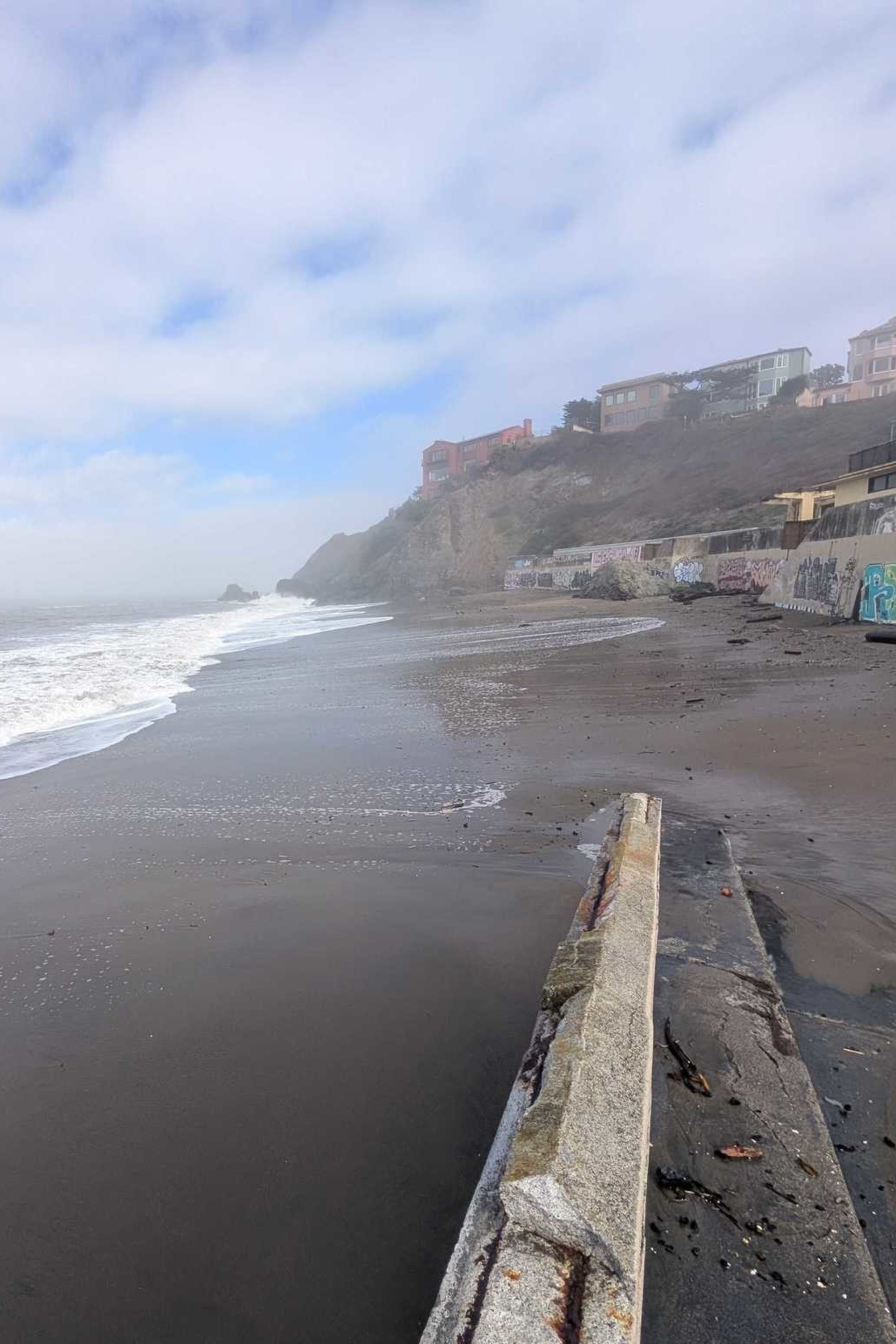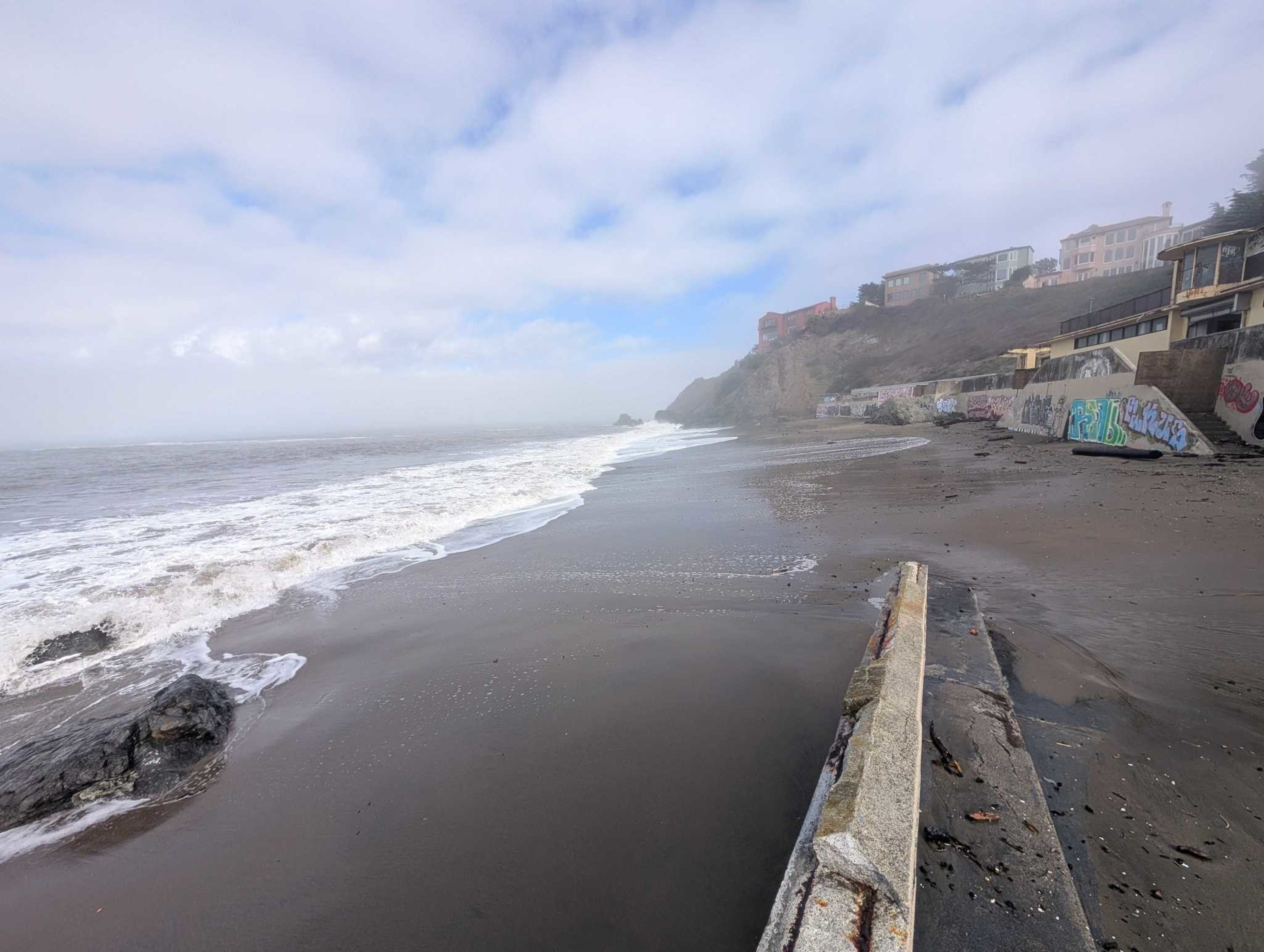At China Beach, the water is frigid and the currents are treacherous, but what has been keeping swimmers on dry land wasn’t the hazards — it was the federal shutdown. Until now.
The sandy shoreline, part of the federal Golden Gate National Recreational Area, reopened Wednesday thanks to donors who pooled a modest amount — just $2,500 — to pay for basic maintenance services.
That’s just a drop in the bucket of the frozen federal budget, but it’s enough liquidity to get the trash picked up at China Beach for about two weeks.
“It’s wrong that we should have to, but we are willing to have this in our life,” said Radha Tomassetti, who has been braving the waters for 11 years and communicates with about 150 swimmers via a WhatsApp chain. “We need to swim.”
The National Park Service confirmed Thursday that the beach had reopened after closing to visitors as part of the federal shutdown that started Oct. 1.
The beach lovers’ initiative is part of a pattern: If the feds can’t get their act together, San Franciscans will just do it themselves.
“Governors and partners in several states have been working with the National Park Service to establish short-term agreements with donations to help maintain operations during the lapse in appropriations,” a spokesperson said. “These agreements allow visitor centers and other facilities to remain open and accessible to the public using state- or partner-provided funds until federal funding is restored.”
Similar arrangements have been made at Alcatraz and Muir Woods (opens in new tab), where concessionaires have paid to keep attractions open.
Sunset resident David Yacubian, 51, got the donations flowing for China Beach with a GoFundMe campaign (opens in new tab) to cover the $130-per-day maintenance cost the park service requires. The fundraiser exceeded its goal, raising $2,500 from 31 donations.
The funding will last through Nov. 19, he said. “If the shutdown persists we will look to extend and may reach out for further donations,” Yacubian wrote Wednesday in an update to contributors.
On Thursday morning, the gates were open, trash bins at the beach appeared tidy, and there were a few cars parked in the lot. Signs warned that the park might not be up to its usual standards.
“We are doing our best to take care of your parks at this time,” a sign said, “but some services and amenities may not be available.”
During the period when China Beach was off limits, many swimmers dove into Baker Beach, which Yacubian said has dangerous conditions and challenging shore breaks.
“It was partly a safety concern,” Yacubian said, concerned as visitors began jumping over gates to access China Beach, prompting park police to respond.
Yacubian’s path to reopening the beach began when he learned that other Golden Gate National Recreation Area facilities had circumvented the shutdown. The Parks Conservancy kept Alcatraz open, and vendors funded the reopening of Muir Woods.
“I just called the park service and said, ‘Hey, what would it take for us to reopen China Beach?’” Yacubian recalled. If he could come up with the minimum maintenance fee for at least three days at a time and sign an agreement with the Department of Interior, the department would welcome visitors back to the beach.
One aspect of the arrangement that Yacubian emphasized is the direct benefit to park service employees who would otherwise remain unpaid during the government shutdown.
“The money for private funds like this goes straight to the park service employees that work,” Yacubian explained. “It’s not like the money is getting held up in any way. It goes straight to somebody that’s working there over the two-week period.”

